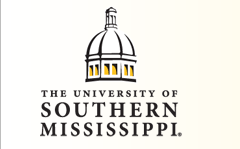Date of Award
Fall 12-2007
Degree Type
Dissertation
Degree Name
Doctor of Philosophy (PhD)
Department
Educational Leadership and Research
Committee Chair
Dr. Michael Ward
Committee Member 2
Dr. Portia Hull
Committee Member 3
Dr. James T. Johnson
Committee Member 4
Dr. Gaylynn Parker
Abstract
The purpose of this study was to investigate the perceptions held by students in two alternative school settings in urban settings in Mississippi and in two alternative school settings’ in urban settings in Louisiana. The investigator focused on students’ perceptions of student-centered school culture and school effectiveness. A study of students’ attitudes and opinions about what makes them feel successful in an alternative school should contribute significantly to the field of educating and meeting the needs of at-risk students both academically and behaviorally.
A multiple regression analysis was conducted in this research project to evaluate how well student-centered school cultural measures predicted perceived school effectiveness. The research question was stated as follows: Are alternative school student perceptions of school culture predictive of their perceptions of school effectiveness? The hypothesis was stated as follows: There is a statistically significant relationship between students’ perceptions of student-centered school culture and their perceptions of school effectiveness among the four alternative schools represented in this study. The target population chosen as the study participants included all students in two alternative schools in Mississippi and two alternative schools in Louisiana.
The variables chosen for this study were supported by the literature describing effective alternative schools. Each item was analyzed for accuracy. The data collected clearly showed a relationship between student perceptions of culture and student perceptions of school effectiveness. School culture factors that make a difference are safety, school size, expanded teacher role, positive relationships, academic innovation and supportive services. The partial correlation between the culture measure “academic innovation” and the students’ perceptions of school effectiveness was significant. Results indicate that academic innovation was the most single important independent variable describing effective alternative schools. The study suggests the need for further inquiry in other areas of the school environment and over a larger study group, but the variables tested were relevant within the context of the hypothesis.
Copyright
2007, Sarah Alice Duggan
Recommended Citation
Duggan, Sarah Alice, "STUDENTS’ PERCEPTIONS OF ALTERNATIVE SCHOOL EDUCATION" (2007). Dissertations. 1306.
http://aquila.usm.edu/dissertations/1306
Included in
Educational Assessment, Evaluation, and Research Commons, Educational Leadership Commons, Elementary and Middle and Secondary Education Administration Commons
